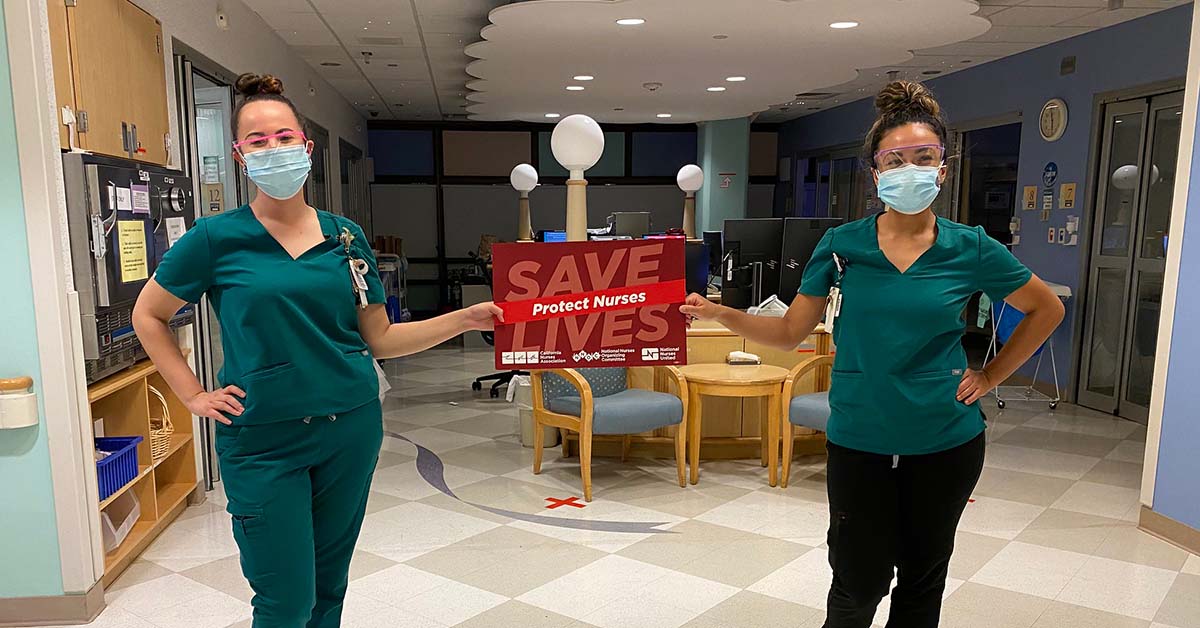Know your rights: Protections at work for Covid-19

What Your Employers Should Provide: Protections at Work for Covid-19
It’s the Law: Your Employer Must Protect You
The federal Occupational Safety and Health Act of 1970 requires employers to provide “employment and a place of employment which are free from recognized hazards that are causing or are likely to cause death or serious physical harm.” Known as the general duty clause, this includes Covid-19 exposure in hospitals and other health care facilities.
PPE for Covid-19 must include, at minimum, N95 respirators or higher, isolation gowns, eye protection, and gloves. Surgical and non-respirator face masks do not protect persons from airborne infectious diseases and cannot be relied upon for novel pathogens such as Covid-19. A Powered Air-Purifying Respirator (PAPR) with high efficiency particulate air filters must be worn during aerosol generating procedures on suspected or confirmed Covid-19 cases.
Protections hospitals/health care employers must implement for COVID-19:
- Open and continuous communication about any potential exposure to suspected or confirmed Covid-19 case(s).
- Screening protocols to identify patients who may have Covid-19 infections.
- Plans to ensure prompt isolation of patients with suspected or confirmed Covid-19 infections in airborne infection isolation rooms.
- Protective PPE for nurses and other health care workers providing care to patients with suspected or confirmed Covid-19 infections including airborne and contact precautions. PPE for Covid-19 must include, at minimum, N95 respirators or higher, isolation gowns, eye protection, and gloves. OSHA recommends that if N95 respirators are not available, employers should use higher levels of respiratory protection such as N/P/R100s, elastomeric respirators, powered-air purifying respirators, and others.*
- A Powered Air-Purifying Respirator (PAPR) with high efficiency particulate air filters must be worn during aerosol generating procedures on suspected or confirmed Covid-19 cases.
- All donning and doffing should be performed in a separate room, with a buddy system to ensure efficacy and hands on training.
- 14 days paid precautionary leave for a nurse or other health care worker who is exposed to Covid-19.
- Exposure incident procedures. Employers must identify, evaluate, and investigate potential worker exposures. Medical follow-up services must be provided, free of charge, to all exposed employees.
* See page 15 of OSHA’s “Guidance on Preparing Workplaces for Covid-19”